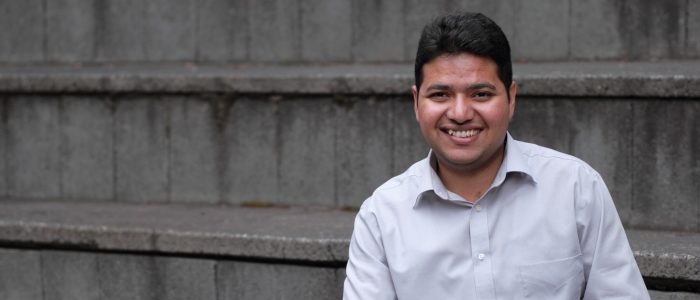News
3D printing bone tissue
Jun 28 2022
From a field of more than 400 contenders, ACES PhD candidate Vipul Gupta took out the top poster prize at the prestigious HPLC symposium for separation scientists last month.

Vipul’s research forms part of our Electrofluidics and Diagnostics theme, which aims to develop new medical and environmental diagnostic devices using 3D printing techniques.
“We are working towards producing miniaturised, portable, low-cost, easy to use, and improved diagnostic devices using novel 3D printing techniques and materials,” Vipul said.
The development of such devices—which seek to move analysis out of the traditional laboratory setting—will inevitably provide more robust and reliable in-site, at-site, and personalised analytical and diagnostic capabilities.
3D printing techniques make new device possible
“My poster presentation described fabrication techniques that will help the team develop portable plug and play 3D printed miniaturised analytical devices to perform sample in and answer out analysis at a given site without pre-required technical expertise,” Vipul said.
Specifically, Vipul’s poster explored novel applications of metal 3D printing to produce high-pressure miniaturised columns with highly complex internal architectures, for application in portable analytical systems.
“Conventional manufacturing techniques have limited capacity to fabricate complex structures in materials such as titanium, and would require multiple stages and generation of individual component parts,” he said.
“Hence here we have explored the use of 3D printing to overcome these limitations. We have used 3D printing to fabricate complex miniaturised chromatographic columns, which would simply be impossible to generate using alternative approaches.”
Best poster from a highly competitive field
The conference attracted around 1000 delegates from 40 plus countries, including pioneers in the field of chromatography, microfluidics, and mass spectroscopy.
Vipul presented his work in poster form, and in person, to interested conference attendees and was judged the best poster by a panel of over 20 international experts.
“Presenting my work to number of experts provided me with positive feedback, comments and suggestions to advance this work further,” Vipul said.
“We also received significant attention for our work from various industrial and academic leaders, who acknowledged its practical and fundamental applications.”
“I am sure the experience and knowledge gained during this trip will help me to guide my future research work and advance my professional skills,” he said.
Electrofluidics and Diagnostics Theme Leader Brett Paull said the win was a great acknowledgement of Vipul’s scientific achievements.
“It’s also great to see how much further students such as Vipul can progress when part of a successful collaborative network, such as that underpinning ACES,” Brett said.
Vipul works in collaboration with senior ACES and Australian National Fabrication Facility (ANFF) researchers Prof Gordon Wallace, Dr Stephen Beirne and Australian Centre for Research on Separation Science (ACROSS) researchers Profs Brett Paull, Pavel Nesterenko, and Dr Mohammad Talebi.













